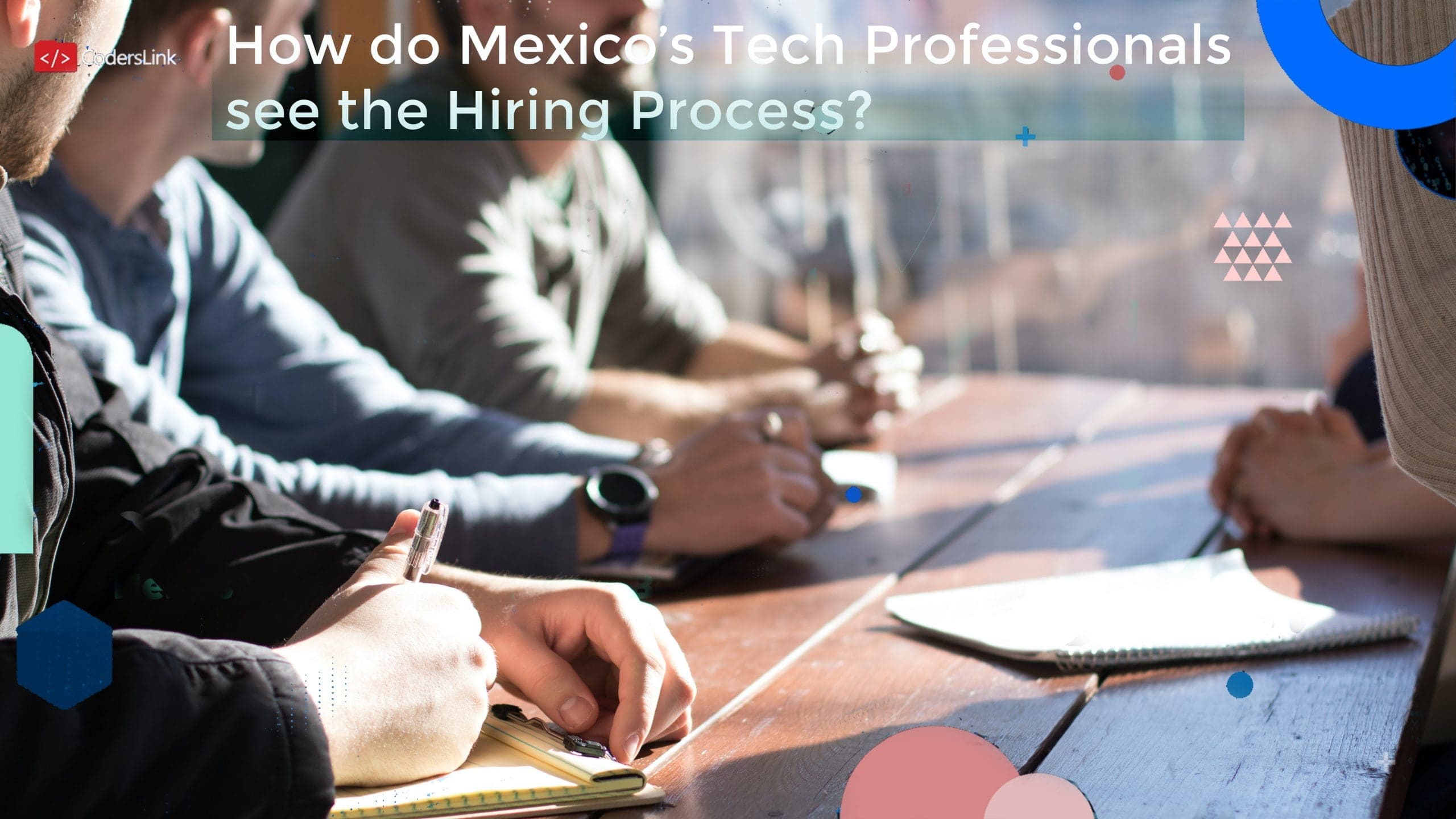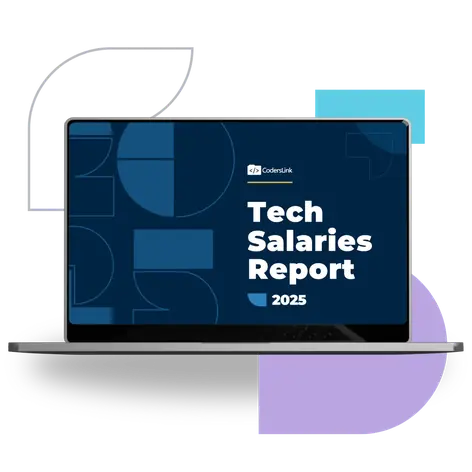
Our 2024 Mexico Tech Salaries Report reveals fascinating insights into how tech professionals in Mexico experience the hiring process. With U.S. companies increasingly hiring tech talent in Mexico, understanding the expectations and preferences of the talent pool is essential for businesses looking to remain competitive.
This year’s report sheds light on key areas like the ideal hiring timeframe, technical assessments, and the importance of onboarding. Let’s explore these in more detail.
1. Challenges of Recruiting Tech Professionals in Mexico
Recruiting in the tech industry presents unique challenges, especially in a competitive market where talent pools are specialized and highly sought after. Companies need to:
• Understand candidate motivations: The more information hiring managers have about the talent pool, the better they can align opportunities with candidate values.
• Adapt to shifting work models: Remote work and hybrid models have altered candidate expectations, making flexibility a top priority.
• Compete for top talent: With many tech professionals receiving multiple job offers, standing out in the hiring process is more important than ever.
Companies that offer a personalized approach to recruitment can better connect with tech professionals, providing a seamless candidate experience that goes beyond traditional recruiting methods.
2. Tech Professionals on the Hiring and Interview Process
Hiring tech talent can be a lengthy process, and companies must strike a balance between thorough evaluations and keeping the process efficient. According to DevSkiller, the average interview process for tech jobs is around 24 days, while LinkedIn Workforce data shows that advanced engineering roles take up to 49 days to fill.
Our survey found that tech professionals in Mexico believe the ideal hiring process should take no longer than 2 weeks. While this may not always be feasible, companies should aim to maintain a streamlined and transparent hiring process to avoid losing candidates to other opportunities. Key takeaways for hiring managers include:
• Efficiency is critical: Prolonged hiring processes can lead to candidates feeling disengaged or frustrated.
• Clear communication is essential: Keeping candidates informed at every stage of the process can reduce uncertainty and build trust.
3. Evaluating Technical Skills: A Key Component of the Process
Technical assessments are an important part of the tech hiring process, and Mexican tech professionals are open to proving their skills through various evaluation methods. According to our 2024 report:
• 92.9% of respondents agreed that technical assessments, coding tests, or live coding interviews are essential to the hiring process.
• However, the length and timing of assessments matter: Prolonged technical evaluations can increase drop-off rates, so hiring managers must consider the most efficient ways to test skills.
Key Recommendations:
• Incorporate structured technical interviews that allow candidates to showcase their skills without overburdening them with long, multi-stage assessments.
• Provide timely feedback after assessments to keep candidates engaged.
4. Feedback After Interviews: What Candidates Want
Our survey shows that 90.2% of Mexican tech professionals expect detailed feedback after the interview process, and 75% prefer feedback that offers constructive insights into their performance. When companies fail to provide feedback, they risk damaging their employer brand and discouraging future applications.
Unfortunately, 47.7% of candidates reported not receiving feedback after the hiring process. Improving this aspect of the hiring journey is crucial for companies aiming to attract top talent. Here’s why feedback is so important:
• Provides clarity: Candidates want to understand how they performed, especially if they completed technical assessments or interviews.
• Enhances the candidate experience: Personalized feedback demonstrates that a company values the candidate’s time and effort.
What Companies Can Do:
• Create a standardized feedback process that ensures all candidates receive feedback, regardless of whether they were successful.
• Offer detailed feedback that provides actionable insights, which can leave candidates with a positive impression of the company, even if they didn’t get the job.
5. Onboarding: A Critical Phase for Retention
The onboarding process is a pivotal moment that can shape a new hire’s experience with a company. According to the Society for Human Resource Management (SHRM):
• 69% of employees are more likely to stay with a company for three years if they have a positive onboarding experience.
• Companies with standardized onboarding processes see 50% more productivity from new hires.
Our report revealed that 77.6% of tech professionals in Mexico consider the onboarding process to be “very important” to their decision to stay with a company. Poor onboarding experiences can lead to disengagement, decreased productivity, and even early resignations.
To ensure a successful onboarding experience, companies should focus on:
• Creating a structured onboarding program: Ensure that new hires are fully integrated into the company culture and have the tools they need to succeed.
• Fostering strong communication: Regular check-ins during the first few months can help new hires feel supported and connected to their team.
6. Hiring Tech Talent in Mexico: Strategies for Success
The demand for tech talent continues to grow, and the skills gap remains a challenge for many companies. According to McKinsey, 61% of HR professionals believe that hiring developers will be one of the biggest challenges in the years ahead.
For companies looking to hire tech talent in Mexico, the country offers significant advantages:
• Cost-effectiveness: Salaries for tech professionals in Mexico are significantly lower than in the U.S., offering a competitive edge for companies looking to scale.
• Cultural and time zone alignment: Nearshoring to Mexico allows for easier collaboration with U.S.-based teams, especially for companies operating in similar time zones.
• Growing talent pool: Mexico’s tech ecosystem continues to expand, with a growing number of developers, engineers, and IT professionals entering the workforce.
The Future of Tech Hiring in Mexico
As remote work and nearshoring become more prominent, Mexico’s tech industry is well-positioned to meet the growing demand for skilled professionals. Companies that adopt efficient hiring processes, provide clear feedback, and invest in onboarding will find themselves better equipped to compete for top tech talent.
To dive deeper into these insights, download our 2024 Mexico Tech Salaries Report.


